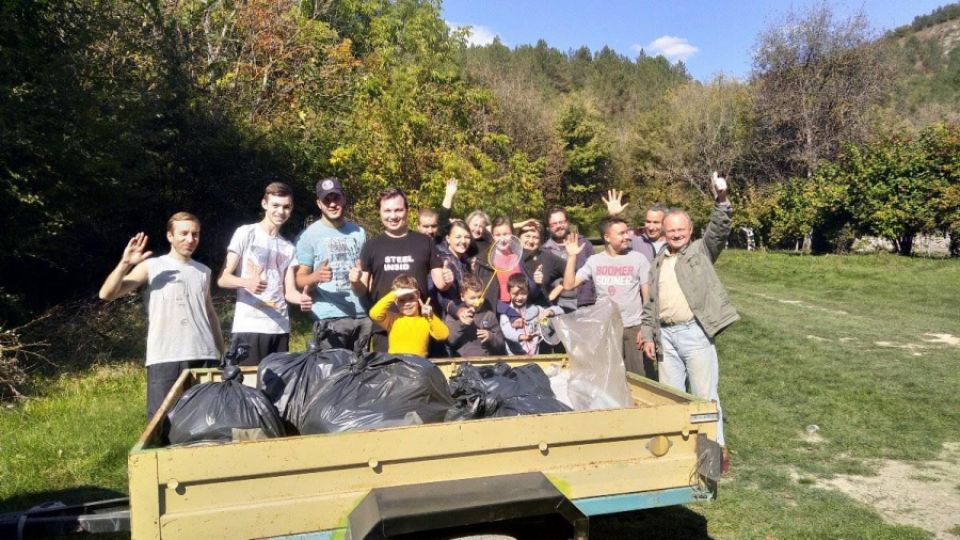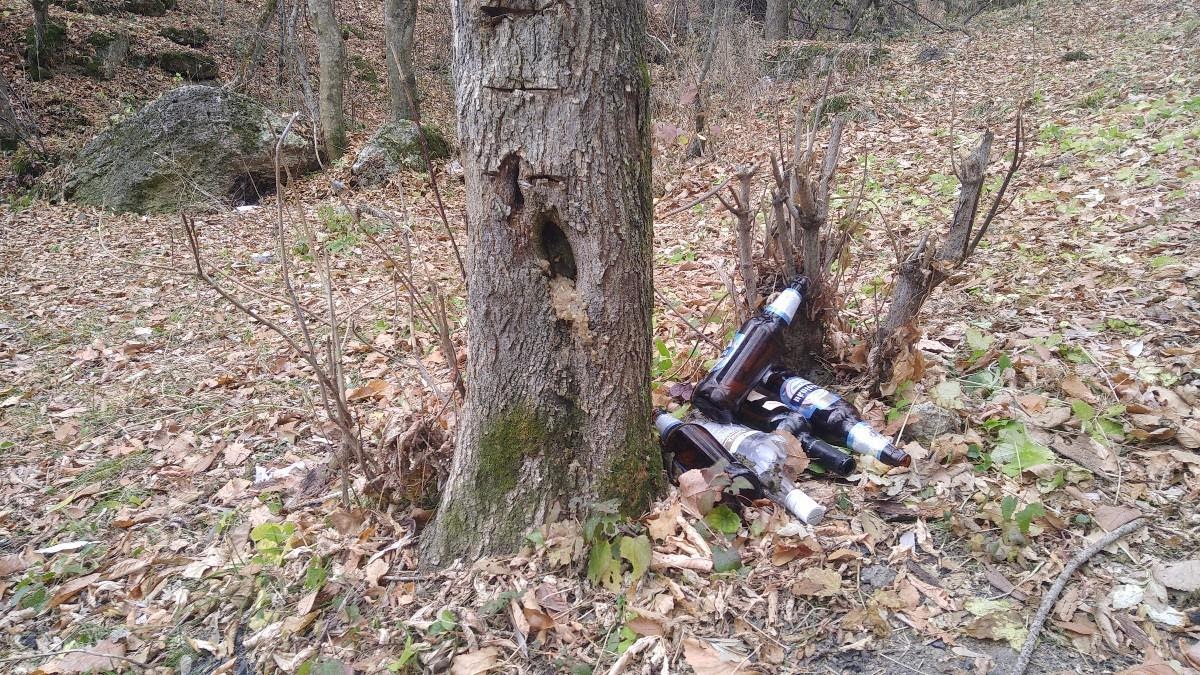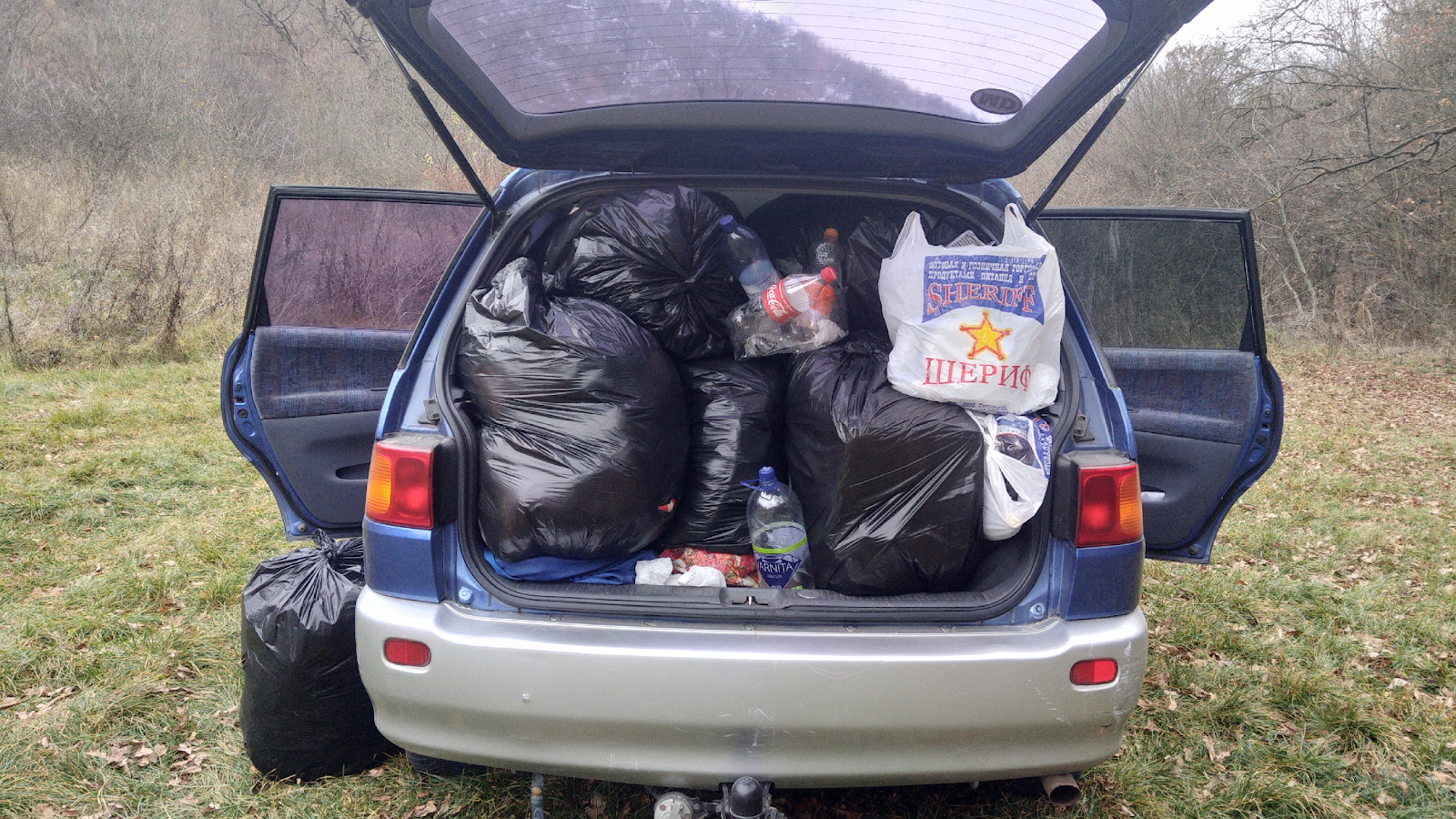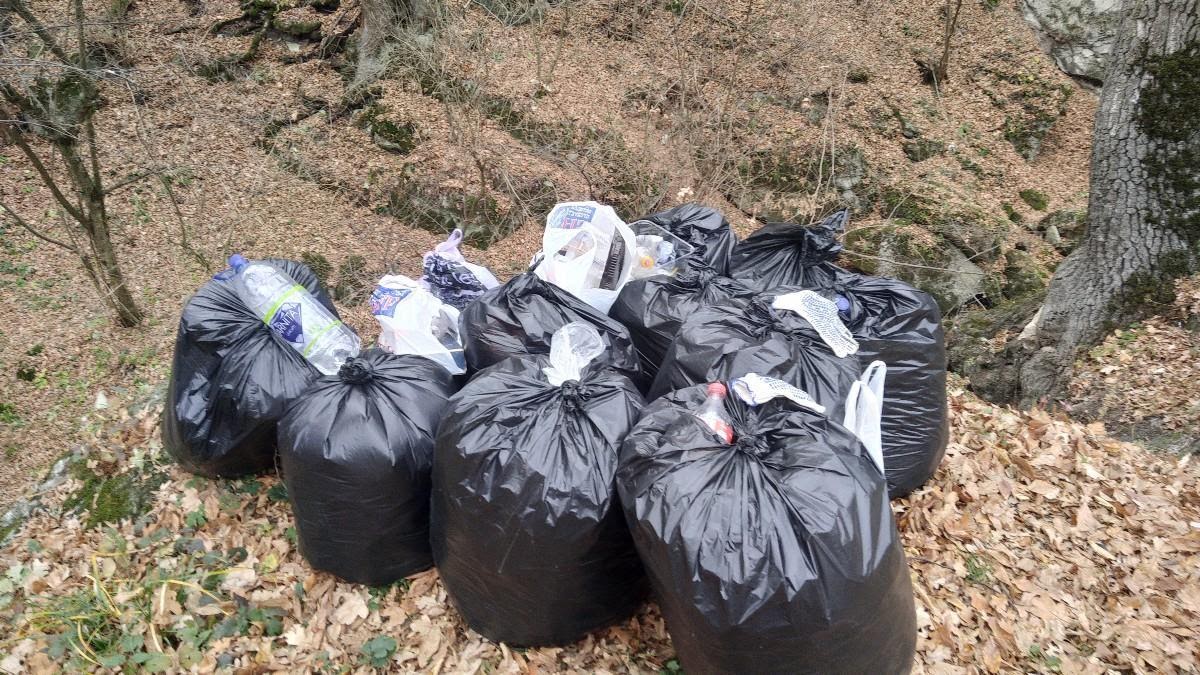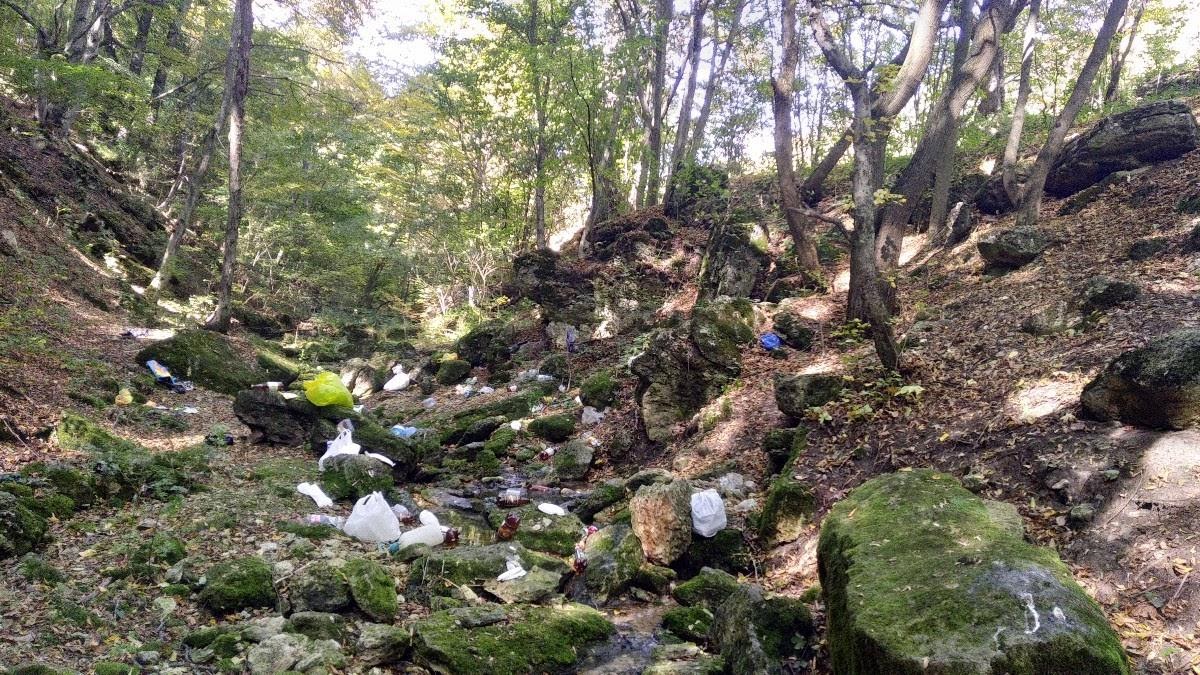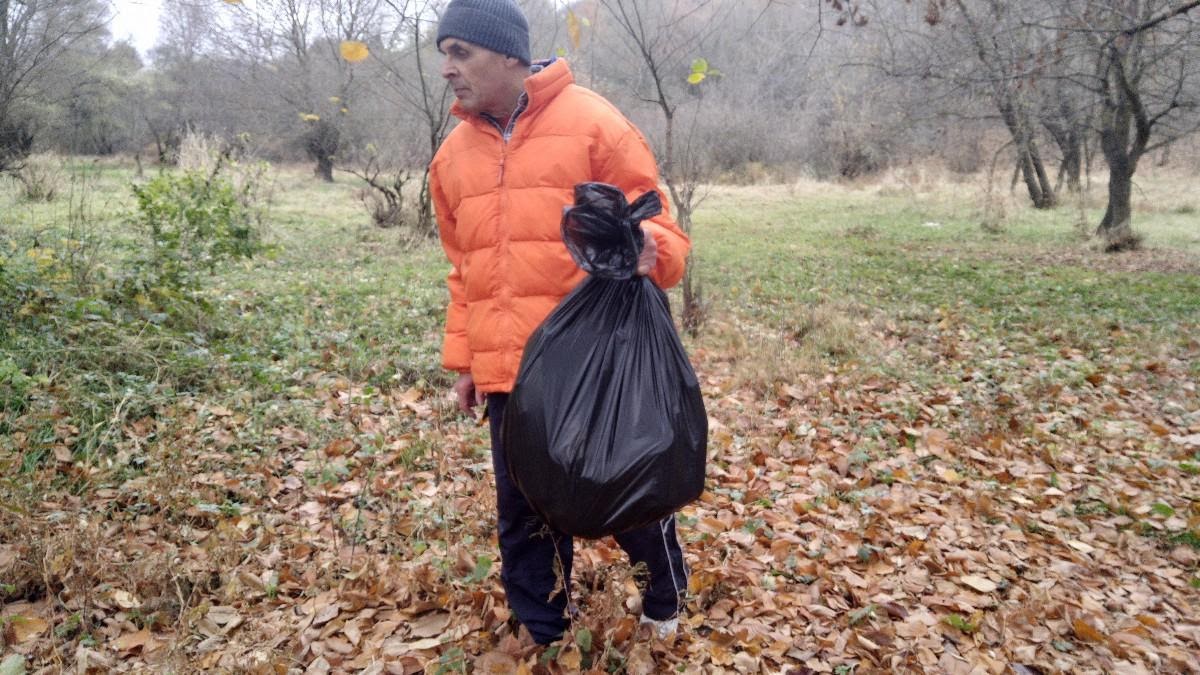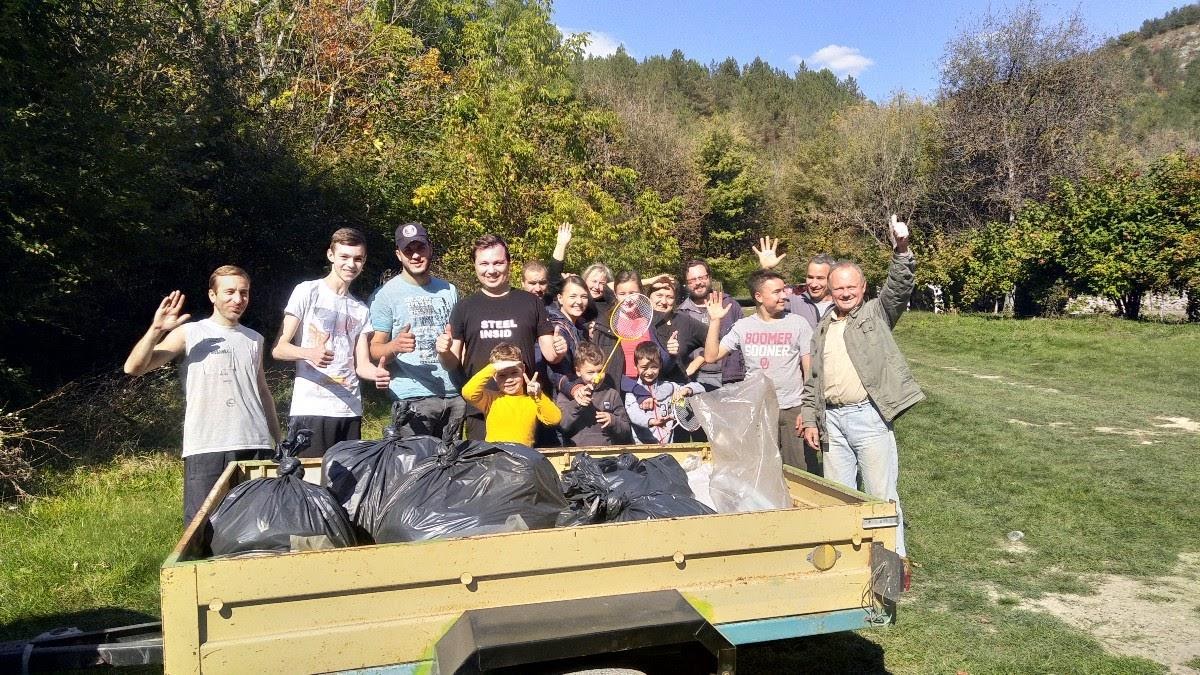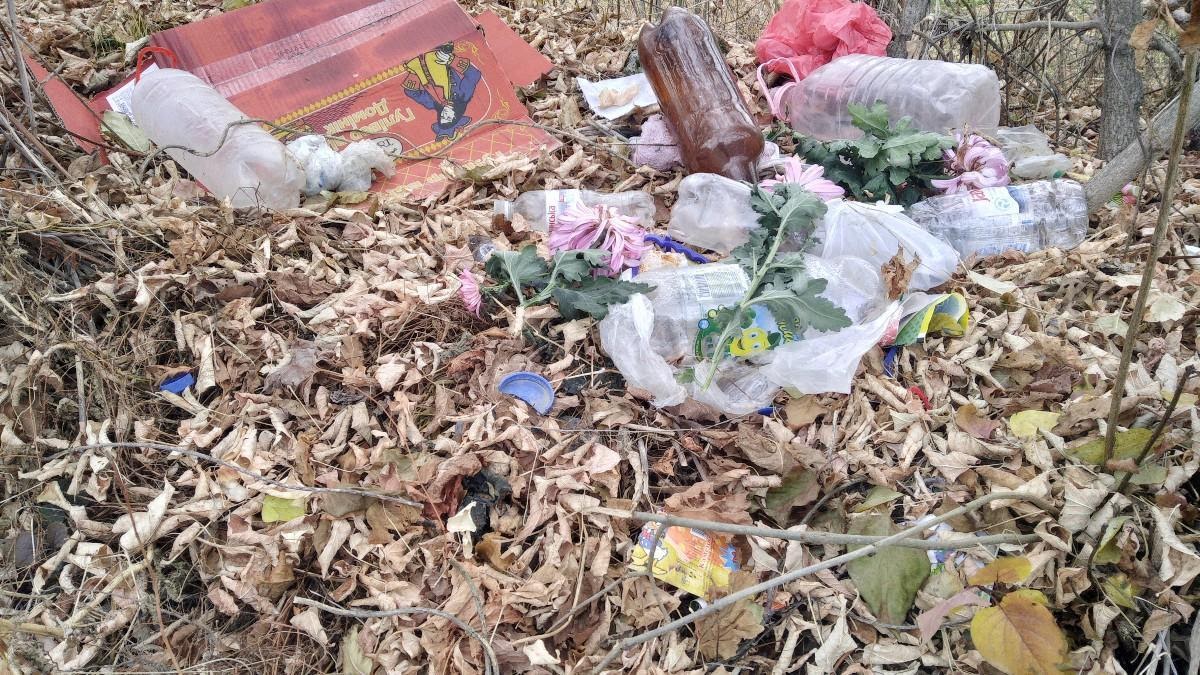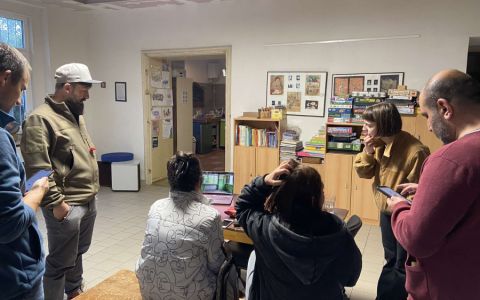Within its environmental project financed chiefly by the Transition Programme of the Czech Ministry of Foreign Affairs, Arnika supported environmental activists of the NGO "DZHiP" in Rybnitsa, Transnistria to systematically exercise public control over the state of their regional environment, often polluted by both local residents and tourists.
The consumer mentality that has been formed over the years, and a significant lack of measures to educate the population on a responsible attitude to nature are the main reasons for the current situation.
In October 2021, an environmental campaign was organized to clean up garbage in the valley of a mountain gorge in the Kalaur tract in the Stroentsy village, Rybnitsa district. The venue of the environmental campaign was not chosen by chance, there is a picnic site where vacationers leave behind mountains of various garbage. A spring and a stream flowing from it are covered with plastic, paper, glass, and other debris. This happens quite often, so the volunteers hold regular environmental events at this place and clean the spring and the stream. Collected and removed garbage-filled up several light trailers.
In November 2021, the DZHiP´s activists assessed the ecological situation in the same place and organized a regular cleaning of the unique mountain gorge, spring, and stream in which almost 30 volunteers and 16 passing-by tourists took part. Huge bags with various sorts of garbage (about 200 kg) were again collected and taken to the city dump. At the end of the campaign, willow seedlings were planted along the banks of the Dniester with the help of the locals and vacationers.
Despite all these efforts, new waste dumps unfortunately quickly reappear, especially in places of recreation. DZHiP´s activists are trying to face this trend by spreading their experience. They invite representatives of various sectors of the society to participate in their actions, they hold conversations with tourists and villagers about the need to protect the environment, they distribute literature on ecological topics and they plan new environmental campaigns with the involvement of an increasing number of caring people.
DZHiP also develops creative promotions - e.g. they conducted a quest, a game journey for the children of one of the micro districts of the city with elements of environmental education, or organized an exhibition of drawings on environmental topics.
Following their efforts, new volunteer custodians of the mountain spring and the stream have appeared. Systematic public control of DZHiP over the ecological situation of their regional environment will continue.



